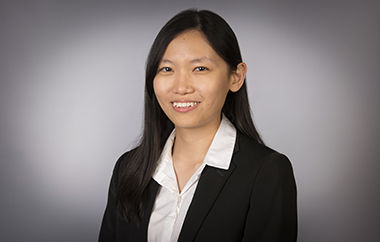PhD Student in Chemical Engineering at Universiti Teknologi Malaysia, Malaysia
Research focus: pinch analysis, industrial heat recovery, heat exchanger network retrofit
Waste heat released from manufacturing processes can be recovered and utilised to heat other parts of the processes via heat exchanger networks (HEN). By performing heat integration via HEN, the amount of waste heat released into the environment and the amount of energy needed for a given process can be reduced significantly.
The main objective of Yee Qing’s research is to develop a new graphical method to improve energy efficiency of existing HEN. A graphical method is easier to understand and to use for normal industrial practitioners. The method proposed can be used to diagnose and retrofit existing HEN in the manufacturing plants. Yee Qing looks into background processes to identify process changes opportunities instead of focusing on retrofitting the HEN alone. Her proposed method, moreover, considers plant-layout factors which may constrain the maximum heat recovery that can be achieved by a given process.
CV as submitted for the Green Talents award (2019):
Universiti Teknologi Malaysia, Malaysia
Research focus: pinch analysis, industrial heat recovery, heat exchanger network retrofit
An increasing amount of greenhouse gas is emitted due to the burning of fossil fuels to sustain manufacturing activities. In order to continue with the present economic development while sustaining the environment, governments and private sectors have long begun to focus their attention on the improvement of energy efficiency and mitigation of industrial emissions. According to the US Department of Energy, the average energy savings for a single energy-intensive manufacturing plant is 1.4 million USD in which process heating and steam generation contribute to about 70% of the energy usage.
Yee Qing’s research focuses on maximising industrial thermal energy efficiency. Waste heat released from manufacturing processes can be recovered and utilised to heat other parts of the processes via heat exchanger network (HEN). By performing heat integration via HEN, the amount of waste heat released into the environment and the amount of energy needed for a given process can be reduced significantly.
The main objective of Yee Qing’s research is to develop a new graphical method to improve energy efficiency of existing heat exchanger networks. Graphical method is preferred over other optimisation approaches as this method is easier to understand and use for normal industrial practitioners. The method proposed can be used to diagnose and retrofit existing heat exchanger networks in the manufacturing plants. Yee Qing looks into background processes to identify process changes opportunities instead of focussing on retrofitting the heat exchanger network alone. Her proposed method moreover considers plant-layout factors which may constrain the maximum heat recovery that can be achieved by a given process.
The jury acknowledged that this promising scientist is developing a method to increase energy efficiency with direct practical use for manufacturing processes, potentially saving large amounts of greenhouse gases from being emitted into the atmosphere.






